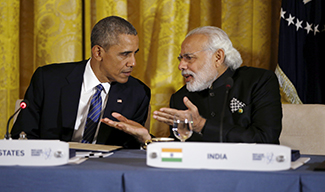
India on Thursday inched another step closer to ushering in an overhauled indirect tax regime as President Pranab Mukherjee gave his assent to the constitutional amendment bill for the Goods and Services Tax (GST).
The constitutional amendment was passed by Parliament in August and has since been ratified by more than half the states. Mukherjee’s nod means that the central government can now set up a GST Council, which will decide on the tax rate and other matters related to the new tax structure. The council will be headed by the union finance minister and will comprise his counterparts from the states.
Finance minister Arun Jaitley had said on Wednesday that the government was moving swiftly to implement GST from 1 April 2017. For this, the government will bring another legislation in the coming winter session of Parliament.
Interestingly, US President Barack Obama on Thursday reportedly weighed in on the GST and said that the new tax regime is likely to unleash significant economic activity. Obama said this during a meeting with Prime Minister Narendra Modi on the sidelines of the 11th East Asia Summit in Laos.
Meanwhile, the Telecom Regulatory Authority of India (TRAI) reportedly summoned executives of telecom companies including Bharti Airtel, Vodafone, Idea Cellular and Reliance Jio Infocomm to try and resolve their differences over the issue of interconnection.
Earlier this week, the telecom companies had reportedly written to the Prime Minister’s office saying that they would not entertain Reliance Jio’s requests for interconnect points, as they cannot handle the deluge of data that the new network would bring their way. Interconnect points are crucial to the new 4G enabled network, whose subscribers will otherwise not be able to make voice calls to subscribers of other networks.
Like this report? Sign up for our daily newsletter to get our top reports.